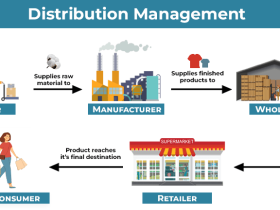
Brokerage Companies in South Sudan
South Sudan, the world’s youngest country, has a developing economy with opportunities in various sectors, including trade, agriculture, natural resources, and real estate. Brokerage companies in South Sudan play a pivotal role in facilitating trade and investment by acting as intermediaries between buyers and sellers, ensuring smooth transactions and market access. While the country’s brokerage sector is still in its infancy due to infrastructure challenges and political instability, several companies and informal brokers operate in key industries.
Key Industries for Brokerage in South Sudan
1. Oil and Gas
South Sudan is rich in oil reserves, making the oil and gas sector a major contributor to its economy. Brokerage firms in this sector primarily facilitate deals between the government, international oil companies, and local investors. They assist in negotiations, licensing, and logistical coordination. However, the dominance of state-owned enterprises and the need for infrastructure development pose challenges for independent brokers.
2. Agriculture and Livestock
Agriculture is the backbone of South Sudan’s economy. Brokers in this sector connect farmers with buyers, both domestically and internationally. They play a vital role in helping smallholder farmers access markets for crops like sorghum, maize, and millet, as well as livestock trade. These brokers also help with export logistics, ensuring agricultural products reach neighboring countries.
3. Real Estate and Land Transactions
With increasing urbanization in cities like Juba, real estate brokerage is growing. Brokers facilitate land sales, rental agreements, and property development projects. Due to the complexity of land ownership laws in South Sudan, real estate brokers often mediate disputes and ensure compliance with legal requirements.
4. Import and Export Trade
South Sudan relies heavily on imports for basic goods and services. Brokerage companies in this sector assist businesses in navigating customs regulations, finding suppliers, and arranging transportation. Popular trade routes involve neighboring countries like Uganda, Kenya, and Sudan.
5. Financial Services
As the financial sector develops, brokerage firms in South Sudan are starting to offer services in insurance, banking, and investment opportunities. These companies act as intermediaries between local businesses and international financial institutions, promoting access to credit and foreign investments.
Prominent Brokerage Companies in South Sudan
While formal brokerage companies are limited, the following entities and sectors have an active presence:
1. South Sudan Investment Authority (SSIA)
Though primarily a government agency, SSIA acts as a facilitator for foreign investors seeking to enter the South Sudanese market. It collaborates with private brokers to match investors with opportunities in key sectors.
2. Informal Brokerage Networks
Informal brokers dominate the market, particularly in agriculture and small-scale trade. They operate in marketplaces and border areas, connecting local producers with traders from neighboring countries.
3. International Organizations and NGOs
Some international organizations, such as the World Food Programme (WFP) and USAID, partner with local brokers to distribute goods and services efficiently. These partnerships have bolstered the role of brokers in facilitating humanitarian aid and agricultural trade.
Challenges and Opportunities
The brokerage industry in South Sudan faces significant challenges, including weak regulatory frameworks, limited infrastructure, and political instability. Many brokers operate informally, which can lead to disputes and inefficiencies. However, the country’s rich natural resources, growing urbanization, and strategic location in East Africa present opportunities for growth.
With improved governance and infrastructure, the brokerage sector could flourish, attracting more formal companies and fostering economic development. As South Sudan integrates further into regional trade networks, brokerage companies will be crucial in bridging gaps between local producers, traders, and international investors.



Leave a Reply